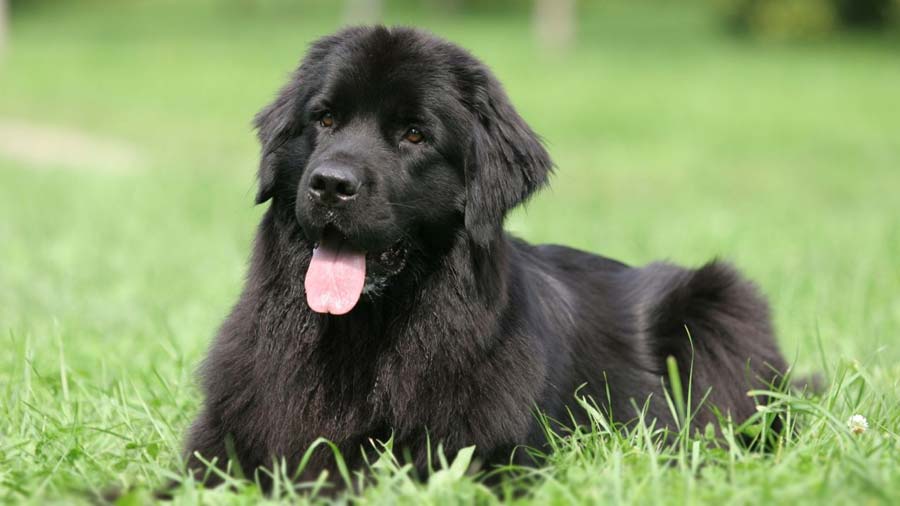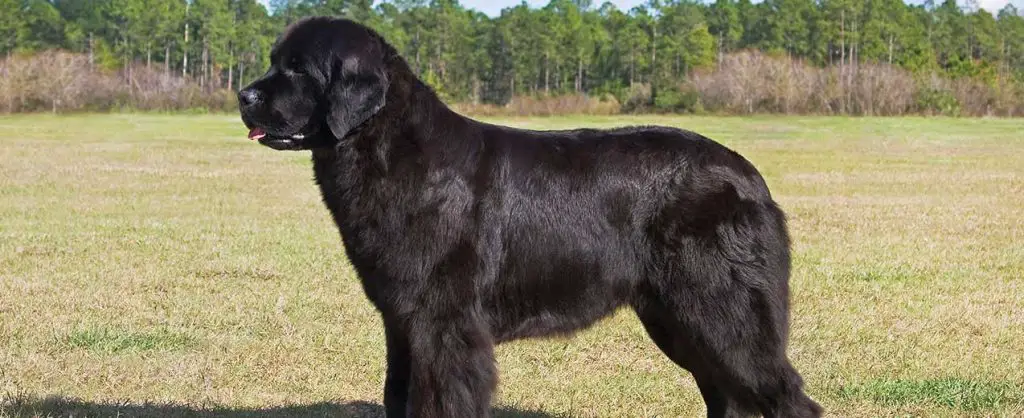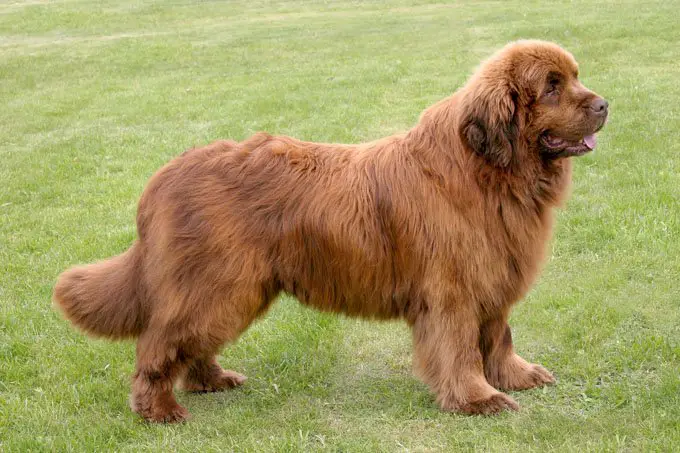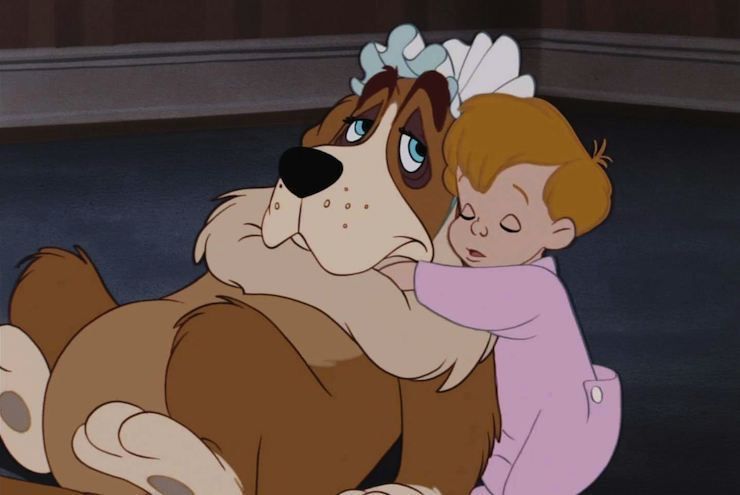
If you’re planning to adopt a Newfoundland, isn’t it right to know them well first? What are their characteristics? Do they suit you and your lifestyle? Do you wonder, are newfoundlands hypoallergenic? No need to worry! Here is your guide to knowing the friendly Newfoundlands.
Newfoundland is a gentle dog who loves kids. They are kind, polite, and compassionate. Fans of this species are saying that Newfoundland is a natural babysitter.
About The Breed
Newfoundland, affectionately known as “Newfie,” originates on the north-eastern coast, Newfoundland, Canada, and is the home of the famous Labrador Retriever as well. The dogs express the desire for fun, intelligence, strong ethics of work, conviviality, adaptability, and versatility.
Newfoundland is a massive breed and typically weigh around 100 pounds. While relatively calm, regular workouts are still required.
Newfoundland should not be regarded as neat freaks because its thick, dense cover is a magnet of dirt and mud. They can track dirt and debris in the house in particular. You must be very careful to mitigate damage. And, well, they seem to drool a lot.
Nonetheless, you’ll find that Newfoundland is an outstanding student when it comes to training. Training should start early as the breed gets big fast, and a 100-pound pooch can be hard to remove from the couch.
About Their Features

The Newfoundlands are known to have webbed feet and a water-resistant fur. Males typically weigh 65-80 kg and females between 55-65 kg in the weight range of the “Giant.”
The standard Newfoundland dog colors of the American Kennel Club (AKC) are black, brown, grey, and white-and-black. Other colors are possible but are not rare or valuable.
The dogs of Newfoundland are renowned for their uniform disposition and stoic nature. Newfoundland dogs usually have dark brown eyes, but light brown or gray coated colors are standard.
Many tales have been told of Newfoundland’s bravery in daring and lifesaving adventures. Many Newfoundlands, especially in warmer climates or during hot days, are known to drool in excess.
A Newfoundland’s Nature
The large bones of Newfoundland give it mass while its large muscle gives it the force it needs to take on rough ocean waves and strong tides. These dogs are highly luminous and have a thick, shiny, and waterproof double coat to shield them from the chill of cold water.
The double coat makes it difficult for the dog to groom and also causes lots of dumping. The droopy lips and jowls drool the dog in particular when the heat is high.
The huge webbed paws of the dog give it full propulsion in the water. The stroke is not a typical dog paddle. Unlike other dogs, Newfoundland moves its extremities in a down-and-out movement giving every stroke more force.
The dog of Newfoundland is renowned for its calm, docile, and reliable character. They are friendly and make good working dogs. This is why this species is known as the “tiny giant.” International kennel clubs generally classify the breed as sweet.
It typically has a deep bark and is easy to train when young. They’re great with kids, but small children can be leaned and knocked down by accident.
Newfoundland is a perfect friend in the field of rehabilitation and is also called the nanny puppy. In general, Newfoundland is good for other animals, but its size can lead to problems if it is not trained.
The good, friendly nature of Newfoundland is so significant that it is included in the Breed Guidelines of many countries; dogs with bad temperament or aggression do not turn up and should never be used for training.
Are Newfoundlands Hypoallergenic?

It depends on the extent of your allergies, whether a Newfoundland dog is appropriate for you or not. It is also essential to understand what is the cause of your allergies. So are newfoundlands hypoallergenic? It depends. Do you respond to dog saliva or dog dander?
With Newfoundland, there are no coats known for skin irritation or allergies, but their dander can cause allergies. You should also notice that a race in Newfoundland also needs a lot of care and maintenance.
There’s a dense robe in Newfoundland that catches most danders without casting them away. Nevertheless, you regularly brush and soak the hair. The dogs undergo a cycle of seasonal disposal that can cause a significant allergy.
A weekly brushing helps avoid dirt, fur allergens, and prevent tangles and tangles. If you are not regularly grooming in Newfoundland, your feet, your crying eyes, ear infections, and skin problems may swell.
That is why Newfoundland is not a good breed if you are too allergic to hands-on grooming. Newfoundland should also have daily baths because its coats can trap dirt, dust, and other allergens.
Newfies shed, and regular brushing helps increase your bathroom hair. Two times a year, in spring and fall, they fell a considerable dump, known as the “blowing coat.”
Most animal owners don’t have to bathe their dogs until they get a “doggy smell,” but pet owners who have allergy want to invest in frequent baths.
If you think that newfoundlands do not suit you, here are some notable breeds that can go well with your allergies:
- Schnauzers
- Shih Tzu
- Maltese
- Boston Terrier
- Bichon Frise
- Shetland Sheepdog
But if your concern is not related to dander, then Newfoundland dogs might be just right for you!
Living With A Newfoundland
Newfoundland is sweet and is on the field or in the waters at sea. The dog is a perfect companion for one person or a family, but it should take into account the size of Newfoundland. Newfoundland’s adult doesn’t need a lot of workouts but can quickly become a couch potato.
Daily walks, run in the yard, or particularly swimming should be allowed to stay fit. Extra weight will shorten Newfoundland’s already short life span, typically 8 to 10 years.
As with any large species, in the first year of growth, a Newfoundland demands plenty of food. In the first year, they literally gain 100 pounds!
However, after that, their metabolism slows down, and almost no calories are needed daily—a slightly more stable Newfoundland than one with extra weight.
Newfoundlands are calm dogs who want to live with you. However, they decrease and are often prone to drooling. For this breed, grooming is necessary both for comfort and safety.
The coat must be periodically cleaned so that dead hair can be removed, and the nails should be kept for a short period. Regular nail trimmings help to keep the feet from splashing as they have a heavy load to bear.
This dog needs regular exercise, albeit very gentle. He’s not a long-distance runner, but he’s a good swimmer.
Training A Newfoundland Puppy
If you train a Newfoundland puppy, you will be very vigilant. Newfoundland develops steadily from the age of four to seven months, like other giant breeds, rendering it vulnerable to bone disorders.
Don’t let your Newfoundland puppy run and play on rough surfaces such as gravel or pull your cart until he’s two years old when he’s completely grown. Standard grass playing is excellent for one-inch leaps like dog agility.
Swimming is the ideal way for a Newfoundland puppy to practice without injuring his joints when he exercises his muscles.
It’s great to start the day you bring your Newfoundland puppy. He’s always ready to make learning easy for him.
Leash training is a must for Newfoundland in particular as he will weigh over 100 pounds when he is fully grown up. Training and compliance classes are recommended.
Can You Trust Newfoundlands With Kids?

This cuddly giant is very forgiving of children, which is good because of his size and abundance of soft fur; he is a kid magnet.
But he can knock on an infant or a small child by accident, and he can look threatening to children who don’t know him.
You should always teach kids on how they should approach and handle dogs, as with any breed, and continuously track any contact between dogs and young kids to avoid biting or tail pulling on the part of either group.
Teach your child never to touch a dog while he eats or sleeps or to attempt to take food from his dog. No dog, no matter how sweet, should ever be left with a child unattended.
Newfoundland is cooperative and straightforward with other domestic animals, including cats and small mammals, as long as it is socialized and well educated.
The Newest Member of Your Family
Newfoundland is calm, sweet, and friendly, particularly to children, but can protect if the situation needs it. While he’s not a dog-like workaholic, he enjoys swimming, especially.
Canine activities in Newfoundland include obedience checks, shooting, tracking, and water training, and sledding.
He is also an ideal companion for a walker or a backpacker and a super therapy dog, who is just the right height for a bedside.
Today, Newfoundland is primarily a friend of the family or a show dog. He has many good qualities that you and your family will love.
If you want to find the simple, patient dog, a Newfoundland will be one of the best out there. You can train him, socialize with him once you take him home, and start an unforgettable journey with your newest family member!
